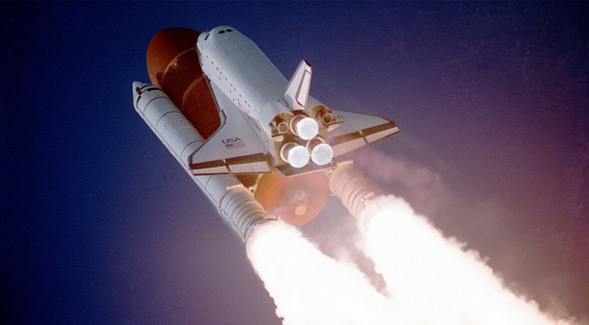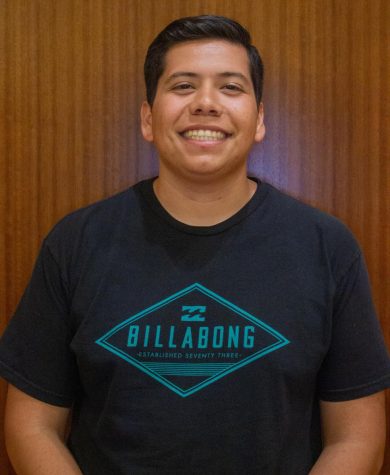
Three San Diego State students have been awarded NASA fellowships to fund their individual graduate research and give them first-hand experience working with NASA scientists.
Analytical chemistry graduate Haley Swanson and aerospace engineering graduates Sergio Sandoval and Adrian Rivera received the fellowship awards, giving them the opportunity to work with NASA scientists over the next three years and to be provided funds by NASA to further their respective fields of research.
Swanson, who graduated from University of Tampa Bay with a bachelor’s degree in chemistry and is currently working on receiving her masters and doctorate degrees from SDSU, said she is thrilled to have gotten this opportunity.
“I could never picture myself, in my wildest dreams, being a part of NASA,” Swanson said.
Swanson said she is especially thankful for this award because it was the last opportunity for her to apply for the fellowship.
“This was kind of my only shot,” Swanson said. “I put everything I had into the application.”
Swanson’s main focus in research has dealt with the origin of life and possible chemical reactions that may affect it. Because of this, Swanson said this made her research unique compared to the others submitted for the award.
“(Mine was) the only origin-of-life related project, which is one of NASA’s core aims,” Swanson said.
Analytical chemistry and biochemistry professor Greg Holland said Swanson has been his student for the past four years and has been a great student and mentor.
“It’s been great working on this project with her, she’s a really good student, and she’s a really good mentor (to the undergraduate students),” Holland said.
Sandoval, another fellowship recipient from SDSU, grew up in Tijuana, Mexico and earned his bachelor’s degree in aerospace engineering at Georgia Tech before starting in SDSU’s master’s program.
Sandoval said receiving NASA’s funding will allow him to continue expanding his research proposal that has the potential to make space exploration more cost efficient. In the last year, he also has worked with NASA’s Mission Planning and Trajectory Design.
“We’re developing a new method for entry descent landing for spacecrafts, specifically for (those sent to) Mars,” Sandoval said.
Sandoval also said working with aerospace engineering professor Ping Lu helped him with what he has accomplished.
“(Lu) was the biggest help,” Sandoval said. “I have never had a professor that puts himself out there for his students. Thanks to him, all this happened.”
Rivera, the third fellowship recipient from SDSU, has researched how spacecrafts can limit damage and prevent failures during takeoffs and landings, with Aerospace engineering professor Satchi Venkataraman as his mentor. He is pursuing a joint doctoral degree in structural engineering at SDSU and at UCSD. He graduated in May 2018 with his bachelor’s in aerospace engineering.
Rivera said he hopes the fellowship allows him to help NASA’s future in space exploration.
“I hope the funding helps with humanity to get into space and to further along technology with it,” Rivera said.
He said receiving the fellowship makes him feel humbled and lucky because of its competitive nature.
“I was extremely lucky,” Rivera said. “I’m really fortunate and humbled to be able to receive a NASA fellowship. It’s a very competitive fellowship.”








